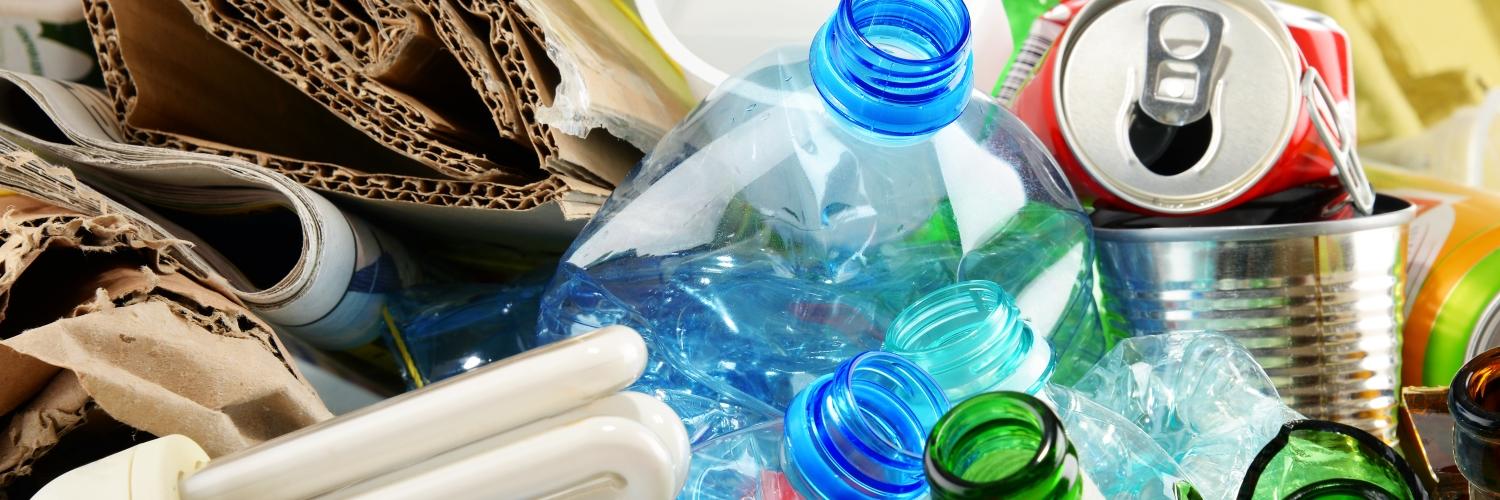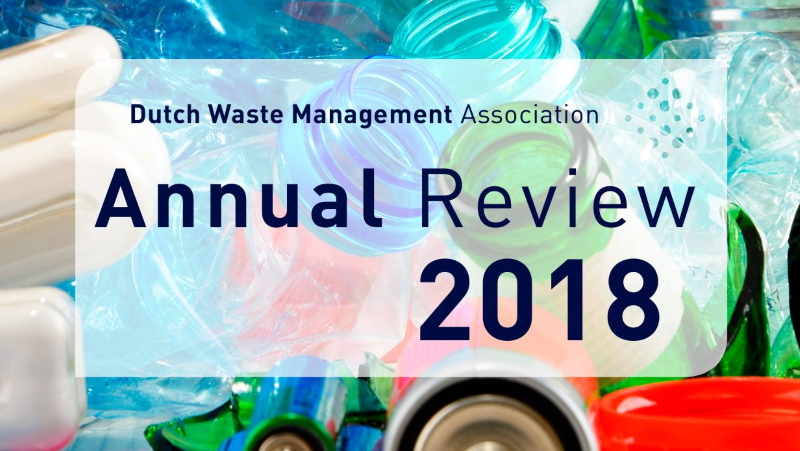
News
18 September 2019
Annual Review 2018 of the Dutch Waste Management Association
In its Annual Review 2018 the Dutch Waste Management Association (DWMA) looks back on the topics that have occupied us during the past year. We worked with undiminished vigour to focus attention on the quality of collected waste materials and to do all we can to prevent fires at our members' premises. In addition, we contributed to the National Climate Agreement, took stock of the potential for energy from waste, prepared ourselves for Brexit and adopted a clear position on bioplastics.
Quality
Calls to drive up the quality of collected waste materials are finding an increasingly sympathetic ear throughout the country. This is essential for the circular economy. High quality recycling streams provide materials for the manufacture of high quality products. The DWMA is working with other parties to improve these quality of collected materials.
Fire prevention
Cooperation is also important in tackling fire risk. The DWMA is working with partners to prevent mattresses and batteries - important sources of fire - from entering the residual waste stream. Waste companies are taking a range of measures to prevent fires. They learn from each other, improve their stock management, ask discarders to look out for materials that do not belong among the waste, and share proactive fire safety measures.
National Climate Agreement
In 2018 the DWMA took part in discussions on measures to reduce Dutch greenhouse gas emissions. The waste sector can help to reduce the carbon emissions of other parties and is keen for this contribution to climate protection to be recognised. The DWMA showed the potential within the waste industry for producing energy to help meet the targets in the National Climate Agreement. More energy can be recovered from the same amount of waste, particularly by making greater use of the huge potential for recovering and supplying heat.
Bioplastics
The DWMA wants to prevent further expansion of the market for biodegradable plastics, which provides no extra benefit for the transition to a sustainable society. In 2018 we took a clear stand: a decision must be made for mechanical recycling of biobased plastics. Biodegradable plastics present problems for both composting and recycling.
Brexit
The DWMA is adamant that the free trade in waste for recycling and materials recovery between the United Kingdom and other European countries must continue after the United Kingdom has left the EU. At the end of 2018 it became clear that existing Waste Shipment Regulation notifications will remain in force after Brexit. Exporters and importers of waste from and to the UK will not have to submit new notifications for consent.
See also

